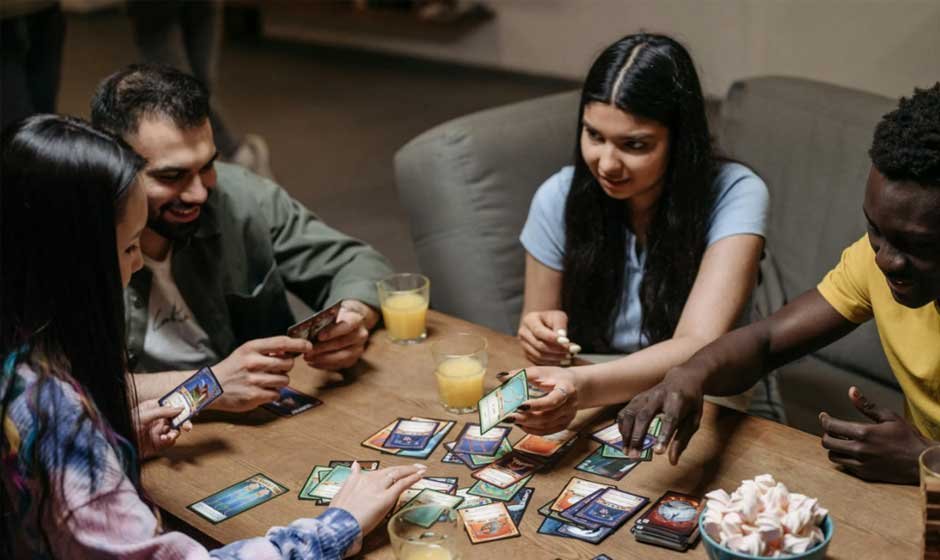As society evolves, so do our forms of entertainment. Among various leisure activities, tabletop games have seen a remarkable surge in popularity. This revitalization can be attributed to several factors, including a growing community, increased accessibility, and appealing narratives. Whether it is families gathering around a board or friends diving into complex role-playing games, these activities foster connections and creativity.
The Social Connection
One of the most significant aspects of tabletop gaming is its ability to bring people together. Unlike video games, which often promote solitary play, tabletop games encourage face-to-face interactions. Players engage in conversation, negotiation, and collaboration, forming bonds through shared experiences. Many enthusiasts attend game nights or events, fostering a sense of community that extends beyond the confines of individual games. The collaborative nature of these games contributes to interpersonal growth.
Players develop crucial social skills such as empathy and communication while strategizing and role-playing. Importantly, they create spaces where everyone feels valued, significantly enhancing group dynamics. Understanding how to read body language and adjust to social cues becomes part of the game, offering a valuable learning experience. With an increase in online communities, this phenomenon has only expanded, making it easier to connect with other passionate gamers.
The Accessibility Factor
Tabletop games are increasingly accessible, with various options tailored to different preferences and skill levels. The influx of affordable games has allowed individuals to enter this hobby without facing financial barriers. Many publishers have recognized the growing demand for engaging content and have developed diverse game formats, making it easier for newcomers to find a starting point.
Simplified rules and clear instructions have been introduced in many newer titles, making them suitable for all ages. Families can now enjoy games that are easy to learn, ensuring that everyone participates. Platforms like ttrpg bookstore are resourceful and help newcomers understand the intricacies and strategies involved in various games, guiding them in their choices. The rise of online platforms for learning and sharing experiences further enhances accessibility.
The Rise of Digital Integration
The blending of tabletop games and digital technology has contributed to their growing popularity. Many games now incorporate apps or online components that enrich gameplay. These digital enhancements provide support, such as keeping track of character statistics or creating immersive environments through augmented reality. This fusion appeals to tech-savvy gamers who enjoy leveraging modern conveniences.
As a result, traditional and digital play styles converge, making tabletop games more engaging and dynamic. The rise in streaming platforms enables players to showcase their sessions, drawing in larger audiences and inspiring even more individuals to join. Several notable streamers have popularized tabletop gaming, demonstrating its fun and unpredictable nature and thereby bolstering interest in the community.
Complex Storytelling and Immersive Worlds
The narrative depth of tabletop games is one of their most alluring attributes. Serious campaigns can take weeks, months, or even years to complete, allowing for extensive character development and storytelling. Many games invite players to immerse themselves in intriguing worlds where their choices impact storylines. Role-playing games, in particular, offer a unique opportunity to create characters that reflect personal experiences or aspirations.
This degree of investment leads to powerful emotional connections. People regard characters as extensions of themselves, often leading to discussions that resonate far above the confines of the game board. In engaging with these intricate narratives, individuals find therapeutic value in expressing emotions and building alternate realities.
The Resurgence of Nostalgia and Community Building
For many, tabletop games evoke fond memories of childhood. The act of rolling dice or moving game pieces can transport individuals back to simpler times, creating a sense of nostalgia that is integral to the experience. This nostalgia draws older players back into the hobby, facilitating a renewed interest in games that once brought joy.
Tabletop games provide a platform for community building through shared interests and experiences. Local groups often host tournaments and events that celebrate creativity, skill, and friendship. As a result, players develop lifelong friendships grounded in mutual love for gaming and storytelling.
Educational Benefits of Tabletop Games
Beyond entertainment, tabletop games can serve as effective educational tools. Many games utilize strategic thinking, logic, and problem-solving, making them ideal for developing cognitive skills. Players must analyze situations, make decisions, and adapt strategies – valuable war tactics applicable to everyday life.

Parents and educators have increasingly recognized the potential of tabletop games as teaching tools. They foster collaboration, communication, and teamwork, qualities vital for success in school and beyond. As schools incorporate game-based learning into their curricula, awareness of tabletop games’ benefits continues to grow among broader audiences.
Regardless of age, skill level, or social background, tabletop games have something to offer everyone. Their multifaceted nature fosters engagement, creativity, and social interaction, paving the way for growth in personal and communal aspects of life.









